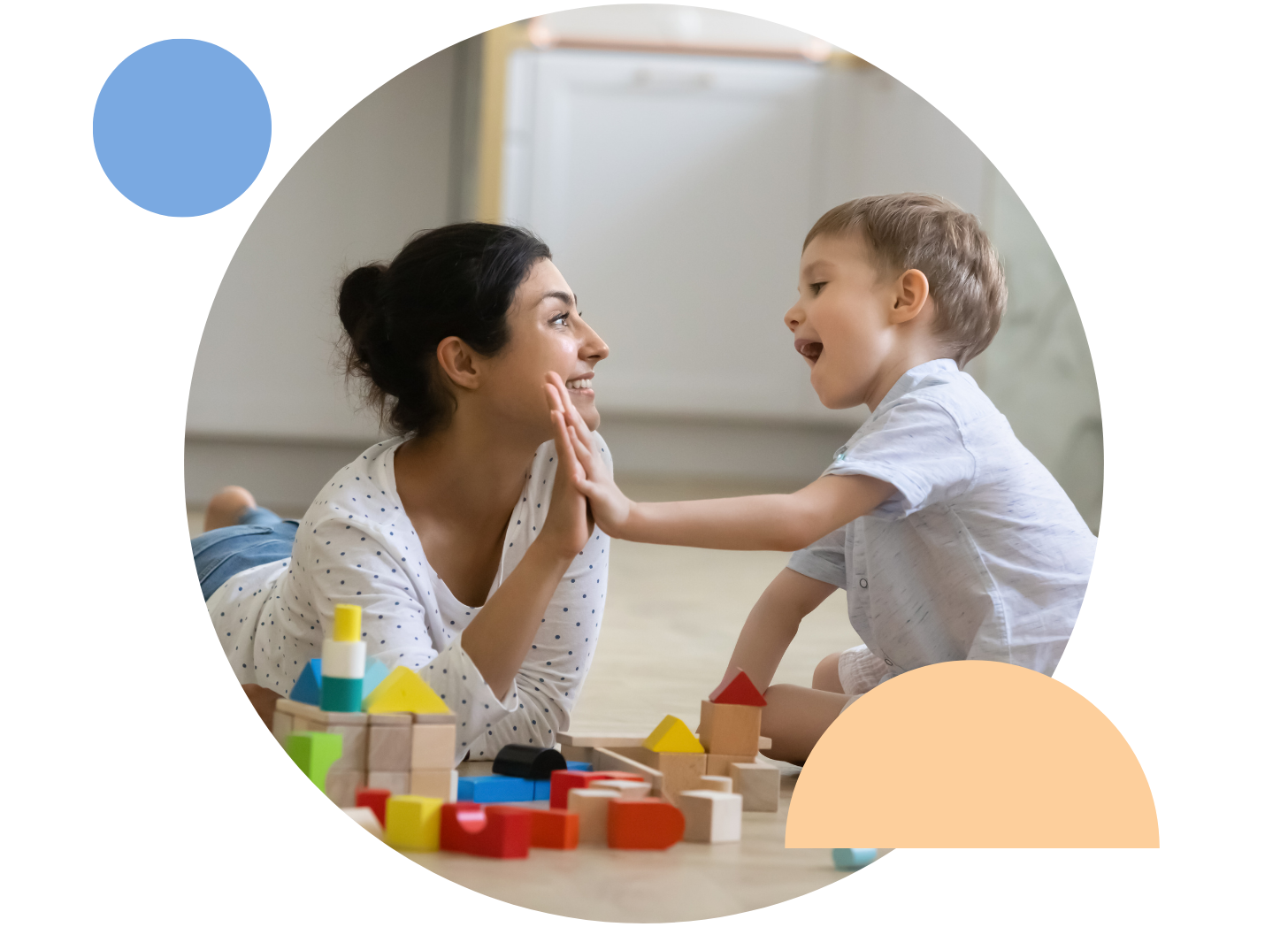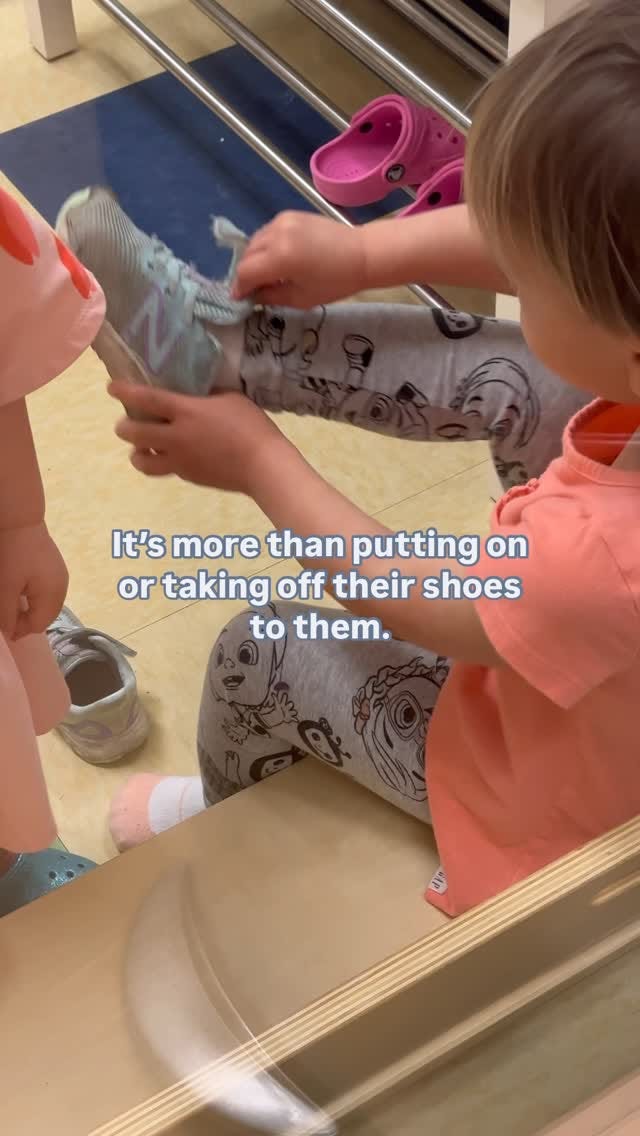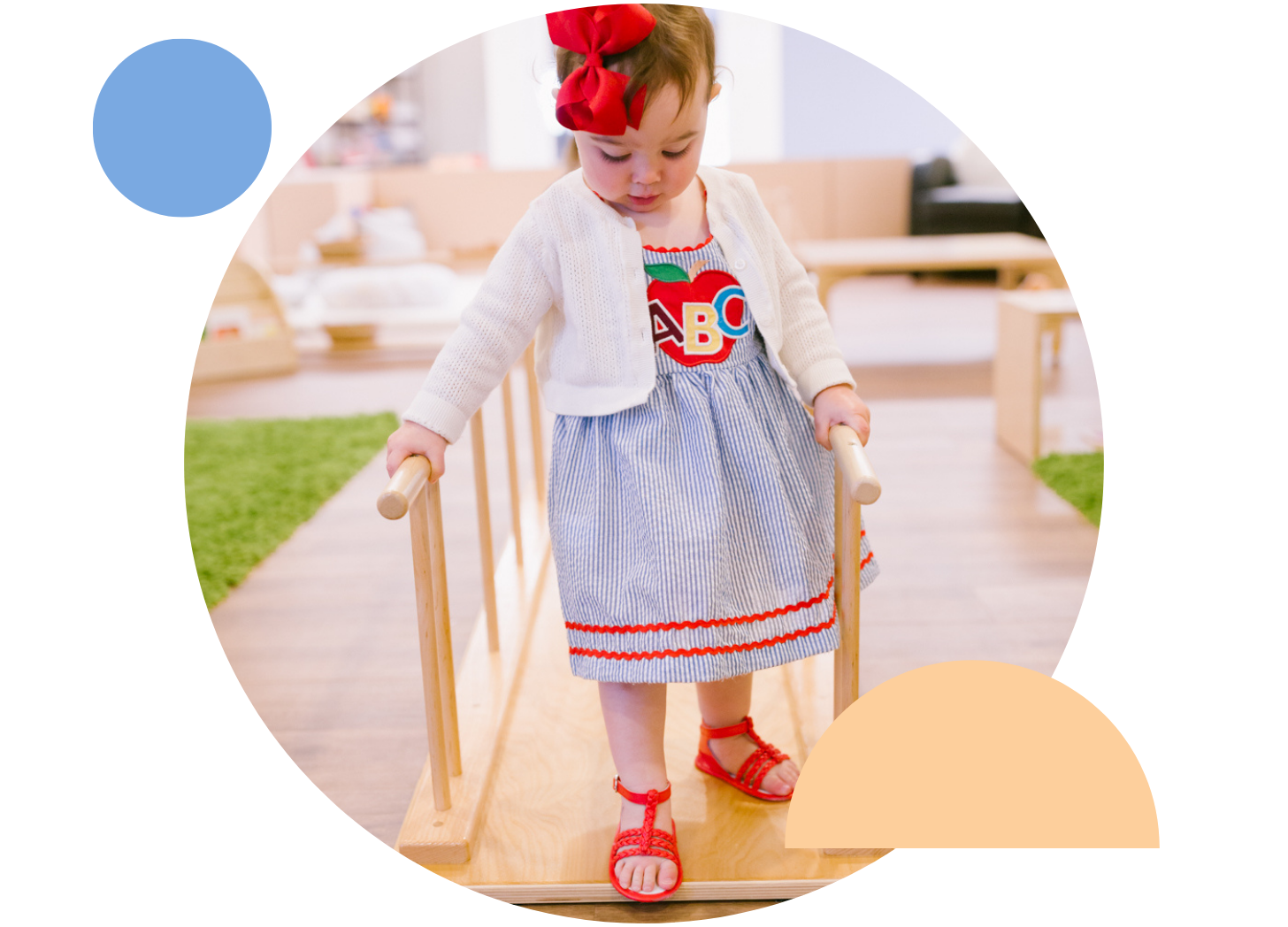We love our children, so, when given the opportunity, we naturally want to shower them with praise and affection.
In fact, society tells us that praise is what builds a child’s self-esteem. If we tell our kids that they can do anything, be anything, succeed at anything… they’ll grow to believe it’s true.
Right? Well, not necessarily.
Montessori argued that self-esteem isn’t built by our words; it’s built by our children’s actions.
It’s one thing to tell a child, “You’re so smart!” and another for them to successfully read their first chapter book. It’s one thing to tell a teenager, “You’re such a good singer!” and another for them to write a song and perform it at their school talent show.
Only by seeing evidence of their capability do kids earn self-esteem.
Action builds self-esteem, not praise
Have you ever witnessed the total concentration of a child who is determined to accomplish a task by themself? Did you take in their expression of pride and delight when they achieved their goal? Perhaps they were focused on putting on their own shoes or pouring milk into their cereal and emerged victorious.
Overcoming challenges like this is what builds self-esteem. Kids don’t believe they can until they do.
Of course, this doesn’t mean praise is bad or invaluable. It helps us build a stronger relationship with our children, for one. But what it can’t do is replace the child’s own experience of capability.
The only way to foster true self-esteem is through real, meaningful opportunities for children to participate in life. They need to feel that their actions, decisions, and work matter.
The Montessori classroom is full of such opportunities:
Infants crawl in and out of floor beds on their own, rather than using cribs.
Toddlers dress, feed, and clean up after themselves.
Preschoolers and elementary students independently explore the prepared environment and choose work that interests them.
When children regularly participate in such meaningful work, they don’t need adults to tell them that they’re capable. They already know.
And they have the earned self-esteem to prove it.
Here’s how to help your kid build confidence, no matter their age:
How to build self-esteem
For babies
Infants are fascinated by the work of learning how to coordinate their bodies. So, we recommend allowing freedom of movement whenever possible.
Babies find so much joy simply in discovering their hands, feet, and ability to roll over. Once they can coordinate a movement on their own, they’re excited and motivated to practice it again and again, until they achieve mastery.
It’s not enough for little ones to crawl; they want to crawl on inclined surfaces and staircases. Always seeking the next challenge, they want to pull themselves up… then shuffle from chair to chair while holding themselves upright. When you’re brand new to life, there’s always something enthralling to learn.
Whenever possible, avoid baby furniture that restricts movement (e.g., walkers, cribs, and high chairs). Instead, opt for floor beds, infant-sized tables and chairs, and other objects that encourage movement.
Moreover, you can invite your baby to participate in daily activities, even in small ways. For instance, once they can grip and release objects, they can hand you a fresh diaper during the changing process. Or, once they begin sitting independently, they can drink out of tiny glasses and use infant-sized silverware.
Then, gradually, little ones can take on more responsibility, further instilling their burgeoning self-esteem.
For toddlers
Toddlers are interested in the tasks of everyday life, the practical work of cutting vegetables, wiping up spills, folding laundry, and zipping their jackets. They want to contribute in meaningful ways — just like they see you doing!
“Toddlers are ambitious. They want to jump long distances, carry big, heavy bags, and balance an abundance of objects in their arms… They want to fill a glass with water up to the line and no further, to scoop beads and pour them in another bowl without spilling, and to stack things just so.”
Each of these activities leads children to the same goal: complete self-mastery over their bodies.
But to achieve this, they also need consistent routines. The world is big and new, so having systems to rely on boosts kids’ confidence that they can anticipate what happens next and prepare for it.
For instance, you might teach your toddler what to do with their coat and shoes when they get home from the playground. Perhaps there’s a designated hook that they can reach or a cubby that sits at their eye level.
By giving your child the tools to handle such situations independently, you allow them to build their self-esteem.
For preschoolers
By the time they reach preschool, children are ready to master good self-care habits. These might include:
Brushing their hair and/or teeth
Dressing themselves
Tying their shoes
Be sure to provide plenty of time for them to practice these skills. (It’s much less stressful to introduce them over the weekend, versus rushing through a shoe-tying lesson right before school!)
It’s also important to prepare your child’s environment for ease of access. For example, you might place toys, art supplies, and other materials on low shelves or in baskets, making it simple for your little one to choose activities and clean them up.
And on the topic of choices, preschoolers are ready and eager to make decisions. They want to select their clothes, snacks, and pursuits. So, whenever possible, we recommend giving them a set of options to help them foster their decisiveness and a sense of autonomy.

Finally, building on their learnings from toddlerhood, preschoolers love practical life activities. Setting the table, washing dishes, and sweeping the floor all promote independence, fine motor skills, and a sense of responsibility.
And it’s from this place that self-esteem naturally emerges.
For older kids
Just as toddlers are fascinated and challenged by the work of chopping a banana or zipping a jacket, older children are captivated by the work of seeing their plans through to completion.
For example, if a child wants to bake cupcakes, they’re excited to go beyond measuring, mixing, and pouring. They want to go further, answering questions like:
Which ingredients will they need?
Where can those ingredients be purchased, and how much do they cost?
How should they decorate the cupcakes once they’re finished?
Which tools and skills will be required to complete these tasks?
Kids also enjoy planning outings. These can be connected to their interests, something they’re learning in school, or a practical life activity (like grocery shopping).
To begin, let them suggest a destination and a purpose, i.e., where to go and what to do once they arrive. From there, you can ask them to help you plan a family trip, including the budget, transportation, etc. You might have them call vendors to ask for prices, calculate gas mileage, or set goals for the adventure.
With each successful outing, kids gain confidence in their ability to navigate the world — and that means they can begin to try it on their own!
When they’re ready, allow your child to walk or bike to nearby places. These might include the grocery store, the library, the post office, or the park (the perfect spot to meet up with friends!).
Back at home, you can also empower your child to help create routines and rules. Ask them:
What should our bedtime policy be?
Where should things be put away?
Which chores should be done each day?
And finally, encourage your child to dive deep into a topic of interest. Whether they love video games, fashion, outer space, or music, invite them to take their learning to the next level. Give them opportunities to research, experiment, and create work that demonstrates their findings.
There’s no better way to facilitate the growth of their self-esteem.
When our kids are confident, they can meet the challenges in their lives with courage. Whether it’s a difficult math problem or a disagreement with a friend, confident children know that they can figure things out, develop new skills, and achieve their goals.
Because they’ve done it before.
So, tell your kids that they’re capable. And then let them prove it to themselves.
☀️ This week’s bright spots:
If you have one minute… Watch this video on why putting on shoes can be the most meaningful part of your toddler’s day.
If you have five minutes… Read why we think it’s an advantage to teach kids to be independent at an early age.
If you have ten minutes… Read this blog on why Montessori focuses so much on independence.














Sooo true